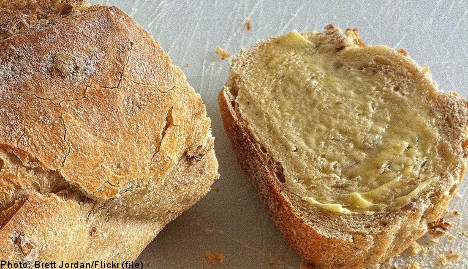According to the city councillor for schools, Lotta Edholm, the kids and their parents are right to be upset:
“I have tried to communicate that the schools can serve both butter and low fat spread if they want. The cleverest solution would be to let the students choose. But unfortunately the message I wanted to get across has got lost along the way,” said Edholm to daily Dagens Nyheter (DN).
The reason for the initial change was a decision by the Stockholm City local authority in charge of education (Utbildningsnämnden) to make schools adhere to guidelines issued by the National Food Agency (Livsmedelsverket).
Behind the decision are tightened rules in legislation regarding schools serving nutritious food. To make things simpler for the schools, the local authority chose to make the guidelines from the National Food Agency be the guiding rule for all schools in the area.
The majority of Stockholm schools therefore removed the more butter-based spreads and replaced them with low fat alternative Becel, a controversial choice due to some scientists linking it with heart-disease and cancer, or other low fat spreads.
But according to Lotta Edholm the guidelines never meant a ban on butter in schools.
“My interpretation of the guidelines has from the beginning been that schools can serve both butter and marge. The School’s Inspectorate’s (Skolinspektionen) interpretation is different. And I find it a little strange that the Inspectorate chooses to blindly listen to the National Food Agency,” Edholm said.
According to Edholm the kids should have the choice between the butter and the low-fat spread and she repudiated any claim that the butter was removed due to Stockholm children being overweight and needing to diet.
“No, they definitely don’t need to diet. If we could just have been able to sort this out ourselves without listening to the School’s Inspectorate I don’t think anyone, politician or official, would have even thought of removing the butter in favour of marge,” said Edholm to the paper.
The Local/rm


 Please whitelist us to continue reading.
Please whitelist us to continue reading.
Member comments